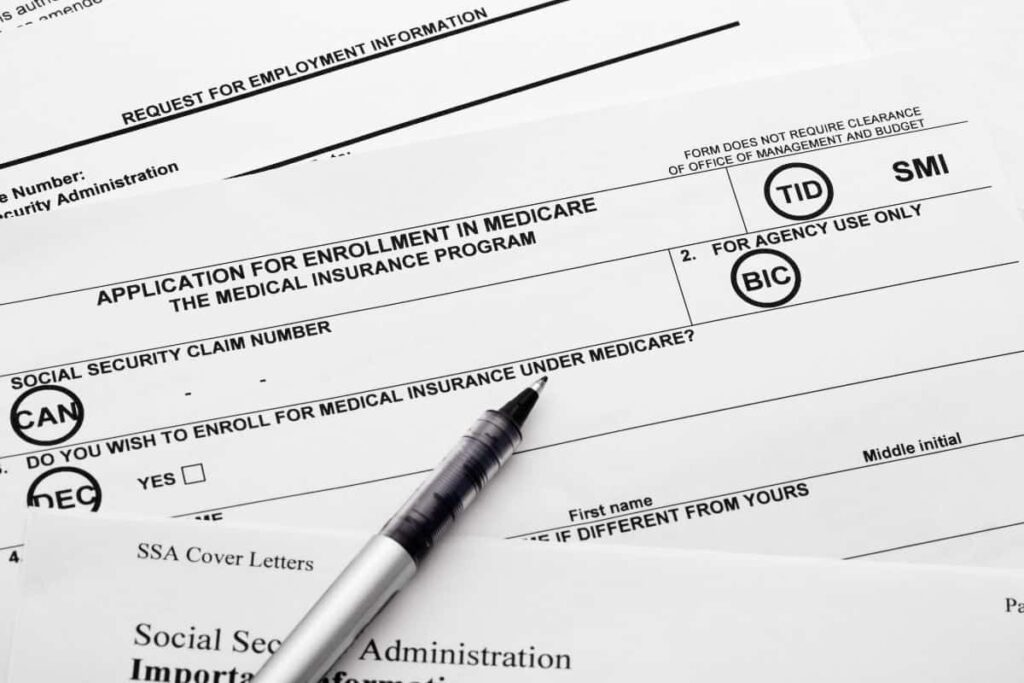Medicare is a health insurance program in America that helps people over 65 years of age as well as young people who receive Social Security disability benefits.
Medicare was established to help these people with the costs of their health care, however, it only covers specific treatments and medication and cannot be used to cover the entire bill of long-term care.
The flex card is a new initiative that was initially introduced in 2018 as a part of policy changes where the company would offer flex benefits to qualifying customers from 2019.
There is a lot of confusion regarding this benefit and so here we look at what exactly the Medicare Flex Card is, who is eligible for it, compare it to Medicare Supplement plans, and look at the advantages and disadvantages associated with it.
Table of contents
What Is A Medicare Flex Card?

A Medicare Flex Card is a debit card that is offered as a benefit with some Medicare Advantage insurance plans. The debit card can be used to pay for qualifying medical expenses, such as purchasing equipment and other such items.
The card has a stored value. The stored value is a culmination of the balance of a flexible spending account and reimbursement account, from medical or dependent care out-of-pocket costs. The card doesn’t have a pin code and is not charged any transaction fees.
These cards are only issued by certain private health insurance companies across the US and plans offered with this card vary between providers.
The amount preloaded on the card also varies depending on the provider, we speak about this more in the disadvantages section below.
Who Is Eligible For A Medicare Flex Card?
Anyone wishing to apply for a flex card will need to already have coverage from a participating policy from the Medicare Advantage plans.
Not all Medicare Advantage plans are linked to this new initiative and the plans that are linked are only available to US residents in certain states.
Underwriting health questions are not necessary to enroll for a Medicare Advantage plan, meaning people who may often face denial as a result of a pre-existing condition will not have this worry.
There are however more costs that the person will have to pay for out of their pocket with this type of insurance plan and there are strict networks that need to be abided by.
As well as this initiative not being available to residents in every state across the US there are also only limited insurance companies that offer flex cards and so you will need to speak with your insurer to make sure that your plan can be linked to the flex card.
Benefits Of The Medicare Flex Card

The main benefit associated with the flex card is that it can be used to cover a range of costs.
The flex card can be used to cover costs accrued from qualifying medical equipment, dental, vision, hearing care, diagnostic devices, prescriptions, OTC medication, copayments, deductibles, and other medically necessary costs that are included in your plan.
It is important to reference your insurance plan before using your flex card to ensure the specific medical expense you have is covered.
If the card is used incorrectly both the expense will need to be paid out-of-pocket and the cost of the charge to the flex card will also have to be paid to medicare, sometimes with a penalty fee.
Disadvantages Of The Medicare Flex Card
The main disadvantage associated with the Medicare Flex card is that it is only available for people who have already purchased a Medicare Advantage plan, which are often the most expensive plans.
While you are spending more money each month many people also find that the flex card does not live up to its promises.
Advertisements around this benefit are also very misleading. Many people are left to believe that if they are eligible that they will receive a pre-loaded Flex card with $2,880, with which they can choose to spend.
Some carriers do offer flex card benefits but receiving the full $2,880 is extremely uncommon and the average amount preloaded on a flex card is $500. How you can spend this is also unclear.
A medical professional needs to deem purchases such as groceries, gas, or new material items as a medical necessity for a person to use their flex card to purchase such things.
Both the process of applying for this benefit and the use of a flex card itself is incredibly confusing and that is why this initiative is not as popular as Medicare would have expected.
Difference Between Medicare Supplement Plans And Flex Card
Flex cards are not available through Medicare Supplement plans as private insurance companies offer Medigap plans as an extension of the original Medicare insurance plans.
Medicare Supplement plans work differently from Flex Cards as they aim to reduce the number of costs that a person needs to pay from their own pocket as it essentially covers any gaps within Medicare Advantage insurance plans.
They help beneficiaries save their money while at the same time receiving benefits that they are in need of to help reduce Original Medicare costs.
Medicare Advantage works differently, they try to reduce out-of-pocket expenses and have a high cap on out-of-pocket expenses.
Additional offers are available to make these policies more attractive, even though the costs are high, hence the flex card was introduced.
Flex cards sound like a fantastic benefit but often people save more money by purchasing a Medicare Supplement plan. The Supplement plans are more straightforward and more affordable.
For anyone trying to reduce health insurance costs a Supplement plan may be more beneficial, you may be let down by the reality of the flex card.
Final Thoughts
We hope that this piece has helped you to understand what exactly the Medicare Flex card is.
If you have any further questions that require a more detailed explanation you should speak with your insurance provider for advice related to your individual situation.
Frequently Asked Questions
Wal-Mart Stores implements a technology solution to enable customers to use flexible spending account (FSA) debit cards.
You can spend FSA funds to pay deductibles and copayments, but not for insurance premiums. You can spend FSA funds on prescription medications, as well as over-the-counter medicines with a doctor’s prescription. Reimbursements for insulin are allowed without a prescription.
In rare cases when you need to pay for qualifying expenses but the provider or store doesn’t take your FSA card, you can use your card to withdraw cash to make the payment. However, you must keep all the documentation proving that the amount you withdrew was used for eligible expenses.
